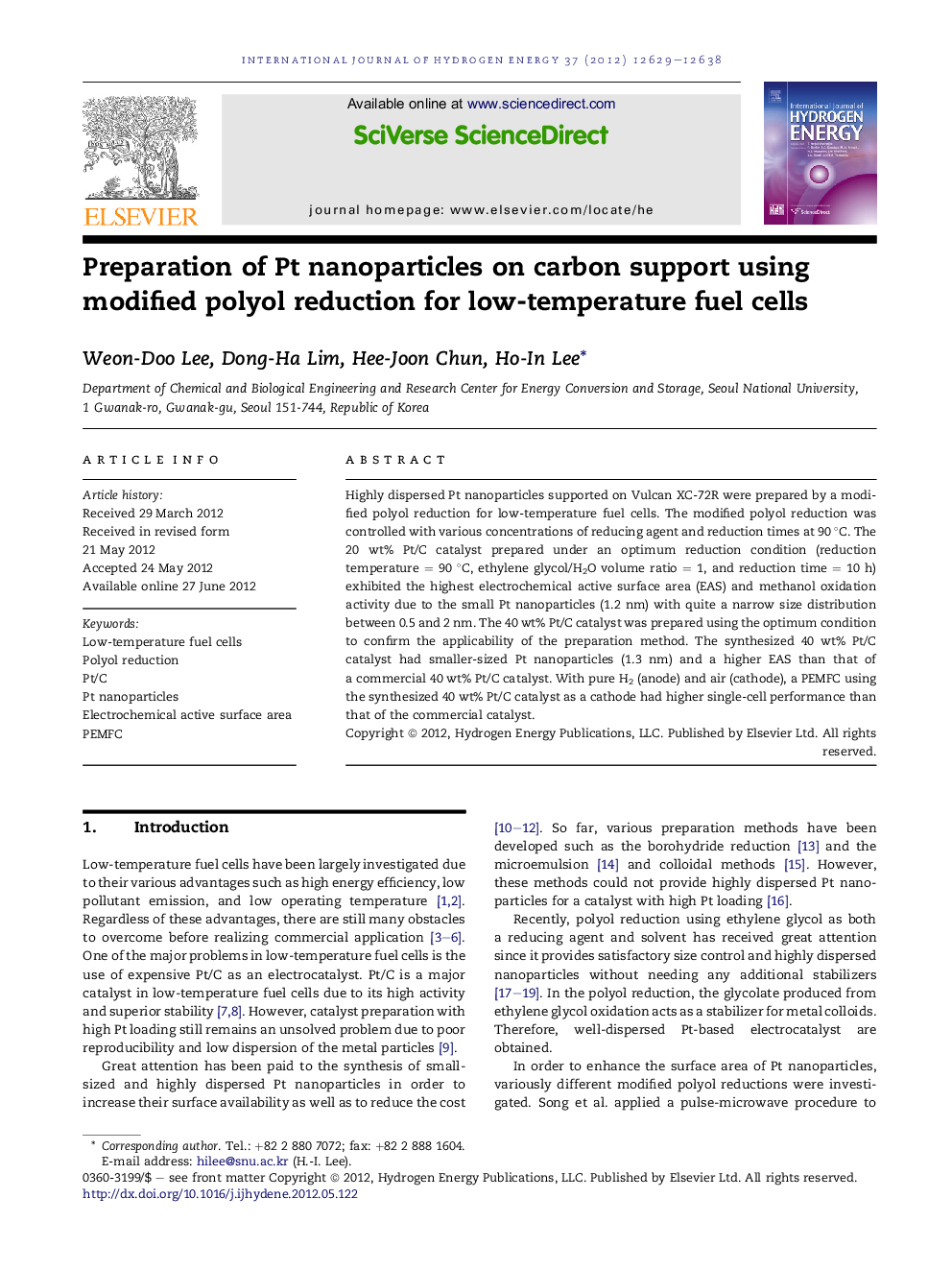| کد مقاله | کد نشریه | سال انتشار | مقاله انگلیسی | نسخه تمام متن |
|---|---|---|---|---|
| 1271100 | 1497552 | 2012 | 10 صفحه PDF | دانلود رایگان |

Highly dispersed Pt nanoparticles supported on Vulcan XC-72R were prepared by a modified polyol reduction for low-temperature fuel cells. The modified polyol reduction was controlled with various concentrations of reducing agent and reduction times at 90 °C. The 20 wt% Pt/C catalyst prepared under an optimum reduction condition (reduction temperature = 90 °C, ethylene glycol/H2O volume ratio = 1, and reduction time = 10 h) exhibited the highest electrochemical active surface area (EAS) and methanol oxidation activity due to the small Pt nanoparticles (1.2 nm) with quite a narrow size distribution between 0.5 and 2 nm. The 40 wt% Pt/C catalyst was prepared using the optimum condition to confirm the applicability of the preparation method. The synthesized 40 wt% Pt/C catalyst had smaller-sized Pt nanoparticles (1.3 nm) and a higher EAS than that of a commercial 40 wt% Pt/C catalyst. With pure H2 (anode) and air (cathode), a PEMFC using the synthesized 40 wt% Pt/C catalyst as a cathode had higher single-cell performance than that of the commercial catalyst.
Figure optionsDownload as PowerPoint slideHighlights
► Highly dispersed Pt/C catalyst was synthesized by a modified polyol reduction.
► The size of Pt nanoparticles was 1.2 nm with a narrow size distribution.
► The modified polyol reduction enhanced EAS without changing electron density.
Journal: International Journal of Hydrogen Energy - Volume 37, Issue 17, September 2012, Pages 12629–12638